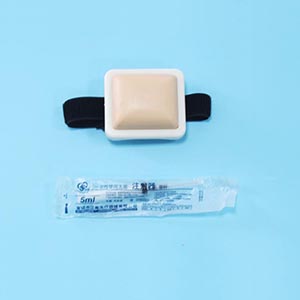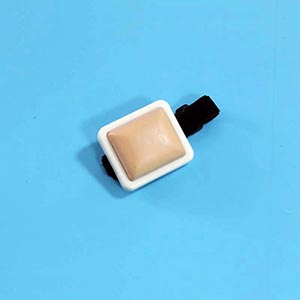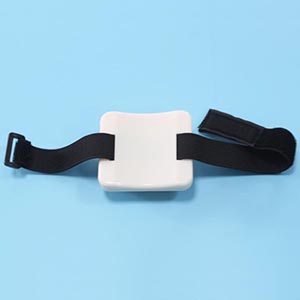

Article tag: Intramuscular injection module| BIX-HS12| Medical Nursing model|
With the continuous advancement of medical technology and training equipment, intramuscular injection modules will continue to play a greater role in medical education, providing stronger support for the professional skills training of medical personnel
...Intramuscular injection (IM injection), as a common drug delivery method, plays an important role in clinical treatment. It is widely used in anesthesia, vaccination, drug therapy and other occasions. However, despite this seemingly simple operation, there are many details involved in the actual implementation. Although traditional clinical practice can provide practical opportunities for medical students, with the development of technology, more and more medical training institutions begin to introduce intramuscular injection training modules. Can these modules provide a more effective training experience than a clinical internship? Let's explore why.
Limitations of clinical practice

Intramuscular injection module
Clinical internships are undoubtedly an integral part of medical education, and students gain a wealth of valuable experience by participating in patient care in a real medical setting. However, clinical practice is not without its limitations, especially when training for a procedure like intramuscular injection, where students may face the following challenges:
1. Patient operability limitation
In clinical practice, patients have different physical conditions, ages, conditions, etc., and the difficulty of intramuscular injection varies from patient to patient. For some patients who are older, of a particular size, or have other health problems, intramuscular injections can be significantly more difficult. For students, frequent contact with different patients for injection training opportunities are limited, and in high-stress environments for practical operation, may not be able to fully practice and master injection skills.
2. Limitation of operation time
In busy clinical Settings, students can usually only operate under the guidance of experienced medical staff, and training opportunities are limited. One operation training may involve only a few movements, can not be repeated practice. In addition, due to the needs of patients and the time constraints of medical staff, students often cannot conduct high-intensity injection operation training in sufficient time.
3. Error risk and patient safety
In clinical practice, medical staff not only need to pay attention to the patient's treatment process, but also to ensure the safety of its operation. Mistakes made by students in the operation may directly affect the patient's health, especially in the operation of intramuscular injection, which involves the details of accurate drug administration, and any small deviation may trigger adverse reactions. Therefore, many medical training institutions hope to reduce the operational risks that may be caused by students in the process of internship through other means.
Advantages of intramuscular injection modules

Compared to clinical practice, the intramuscular injection module provides a safer, more controlled and centralized training environment. Here are some of the main reasons for choosing an intramuscular injection module over a clinical internship:
1. Simulate real situations and repeat the practice
The intramuscular injection training module can simulate the muscle tissue of the human body and provide different injection sites such as buttocks, thighs, upper arms, etc., in a virtual environment. Through these modules, students can practice repeatedly in a short period of time to enhance proficiency in intramuscular injection operations and overcome problems such as frequent patient rotation and limited time in clinical Settings.
Through high frequency simulation training, students can master the correct injection Angle, depth, needle insertion skills, and can quickly adapt to the injection needs of different patients. However, these training are often difficult to achieve in traditional clinical practice, especially for novice medical staff, and the opportunity for repeated practice is very limited.
2. High security, reduce the risk of errors
In the intramuscular injection module, students can train repeatedly without patients, which not only eliminates the risk of errors in the actual operation, but also helps students better understand the technical details of intramuscular injection. For example, students can focus on learning how to choose the right injection site, how to avoid accidental injury to vital nerves and blood vessels, and even in the event of a surgical error, modules can give immediate feedback and provide guidance to avoid harm to patients.
At the same time, many modern intramuscular injection modules have real-time data monitoring functions, which can accurately record every step of the student's operation, from the injection Angle to the depth of the needle insertion, and give real-time feedback. This feedback mechanism greatly improves the learning efficiency and accuracy.
3. Personalized training and progress tracking
The intramuscular injection module can provide customized training content according to the student's progress and technical mastery. Students can start with basic intramuscular injections and gradually increase the difficulty until they have mastered complex injection techniques. In addition, training modules are often equipped with progress tracking systems that record data on each student's operation and automatically generate assessment reports. This not only helps students to assess themselves, but also provides supervisors with a clearer picture of training progress and guidance.
4. Save time and improve training efficiency
The intramuscular injection module is able to provide more efficient training in a shorter period of time than a clinical internship. In traditional clinical practice, students' operation opportunities usually depend on patients' cooperation and actual clinical needs, but the intramuscular injection module can be operated at any time, which greatly improves students' learning efficiency. Students are no longer subject to hospital schedules, patients' treatment needs and other factors, and can practice around the clock.
Data support: Training effect of intramuscular injection module

Many studies have shown that simulation training has significant advantages over traditional clinical practice in terms of skill improvement. For example, a study of 500 medical students showed that after one month of intramuscular injection module training, the students' injection technique error rate dropped from 20% to 3%, and patient satisfaction with the students' injection technique increased by 30%. These data show that the intramuscular injection training module not only improved the students' operational accuracy, but also helped them become more confident in clinical practice.
Another study involving 200 new nurses also showed that after training with the intramuscular injection module, nurses' clinical operation time was reduced by 20% and the incidence of errors was significantly reduced. These data support the positive role of intramuscular injection modules in clinical skills training, especially in reducing errors and improving patient safety.
Conclusion: The change of intramuscular injection module for medical education
Although clinical practice is still an important part of medical education, the intramuscular injection module undoubtedly provides a safer, more efficient and precise way of training in intramuscular injection skills training. Through repeated practice in a simulated environment, students can significantly improve their proficiency and reduce clinical errors, thereby providing safer and better patient care.
With the continuous advancement of medical technology and training equipment, intramuscular injection modules will continue to play a greater role in medical education, providing stronger support for the professional skills training of medical personnel.